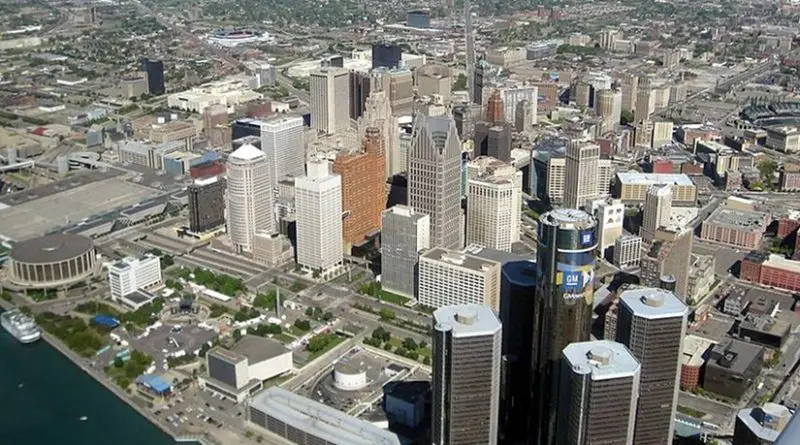WEF Puts Focus On Cities With Public-Private Collaborations At Global Summit
The World Economic Forum Friday announced a series of new partnerships and events aimed at mobilizing support for more sustainable and inclusive cities. This work, which spans four continents, is part of the Forum’s new global Centre for Urban Transformation and a recognition of the critical role that cities play in addressing global challenges such as climate change and increasing inequality.
“Cities are the engine of the global economy and home to a growing majority of the world’s population. If you want to improve the state of the world, you need to start with cities,” said Jeff Merritt, Head of Urban Transformation at the World Economic Forum.
New Partnerships with Cities and Local Governments
To catalyse increased public-private collaboration in cities, three metropolitan areas in the United States have been selected to participate in a series of City Strategy Dialogues commencing in early 2022. Participating local governments include a coalition of four South Florida local governments (Miami-Dade County, Broward County, Monroe County and the City of Miami); Denver, Colorado; and Detroit, Michigan.
Organized by the World Economic Forum in collaboration with Massachusetts Institute of Technology, the City Strategy Dialogues pair Mayors and senior city leaders with global experts and business leaders to forge new approaches to pressing urban challenges where cross-sector collaboration is essential.
“The question we must ask ourselves is not when we will economically recover from this pandemic. The recovery is underway. The question is: how we will prioritize those hit hardest by the pandemic: women, youth, low-income earners, and people of color,” said Michael Hancock, Mayor of Denver. “Government cannot and should not lead this effort alone, rather it is essential that we work together with the business community and other stakeholders to transform our cities into models of equity and inclusion that are sustainable for years and even decades to come.”
“As the gateway to the Americas, Miami-Dade and the greater Miami area are on the frontlines of many of the challenges of the 21st century, like climate change, sea level rise and affordability,” Daniella Levine Cava, Mayor of Miami-Dade County. “Collaboration across sectors and geography is critical to meeting the challenges ahead and I’m thrilled that Miami-Dade is hosting this transformative partnership – and of the regional collaboration and coalition we’re building in South Florida to advance an economic program grounded in equity, innovation, and climate action.”
Detroit will also pilot a new Urban Transformation Fellowship programme aimed at supporting the next generation of urban leaders and connecting local initiatives to expertise from the World Economic Forum’s global network of leading companies, governments, civil society organizations and academic institutions. Local fellows from Detroit will have the opportunity to work as part of a diverse global team shaping the Centre for Urban Transformation’s work while also receiving access to year-round professional development opportunities.
“Our primary focus for Detroit Future City is advocating for equity in land stewardship and economic development as Detroit continues to grow and revitalize,” said Anika Goss, CEO of Detroit Future City. “We know to do this effectively, it takes strong public-private partnerships, global and national best practices, and a commitment to fostering future leaders to be stewards of this work for years to come. Piloting the Urban Transformation Fellowship in Detroit is an important opportunity to engage our city’s remarkable emerging talent in a program that will have lasting impact.”
Complementing these efforts, the World Economic Forum is partnering with urban entrepreneurship firm Utopia to encourage, develop and promote new urban innovations and economic development opportunities in some of the fastest growing regions of the world. Eight cities in Latin America, Africa and Asia will participate in the inaugural Urban Innovation Challenge which launches next month: Bogota (Colombia), Buenos Aires (Argentina), Dhaka (Bangladesh), Jakarta (Indonesia), Kigali (Rwanda), Lagos (Nigeria), Nairobi (Kenya) and Rio de Janeiro (Brazil).
“Lagos, the heartbeat of Nigeria, West Africa’s economic engine and the start-up capital of Africa, teems with innovative potential largely driven by our incredible youth population,” said Babajide Sanwo-Olu, Executive Governor of Lagos State. “Our participation in the Urban Innovation challenge is a great opportunity to harness this potential; which further underscores our commitment to enabling and empowering that spirit of innovation to create transformative value in one of the world’s densest urban landscapes.”
Urban Transformation Summit
These initiatives and others will take centre stage at the World Economic Forum’s inaugural Urban Transformation Summit on 6-8 December 2021, with both virtual sessions and in-person events, in Detroit. The summit will bring together 300+ leaders from business, government, civil society and media to forge new partnerships, showcase innovative solutions and mobilize action in support of more sustainable and inclusive cities and urban economies.
The Summit will feature Mayor Mike Duggan of Detroit; Mayor Michael Hancock of Denver; Christian Ulbrich, CEO and President of JLL; Greg Clarke, Chair of Connected Places Catapult; Jonathan Reckford, CEO of Habitat for Humanity; Bruce Katz, urban policy expert; Anika Goss, CEO of Detroit Future City; and more.
“The World Economic Forum inaugurates this new effort at a time when the economic, social and environmental challenges facing cities could not be more pressing and when the opportunities for public, private and civic investment could not be greater. This is truly a time for urban transformation,” said Bruce Katz, Founding Director of the Nowak Metro Finance Lab at Drexel University and advisor to Bedrock Detroit.

